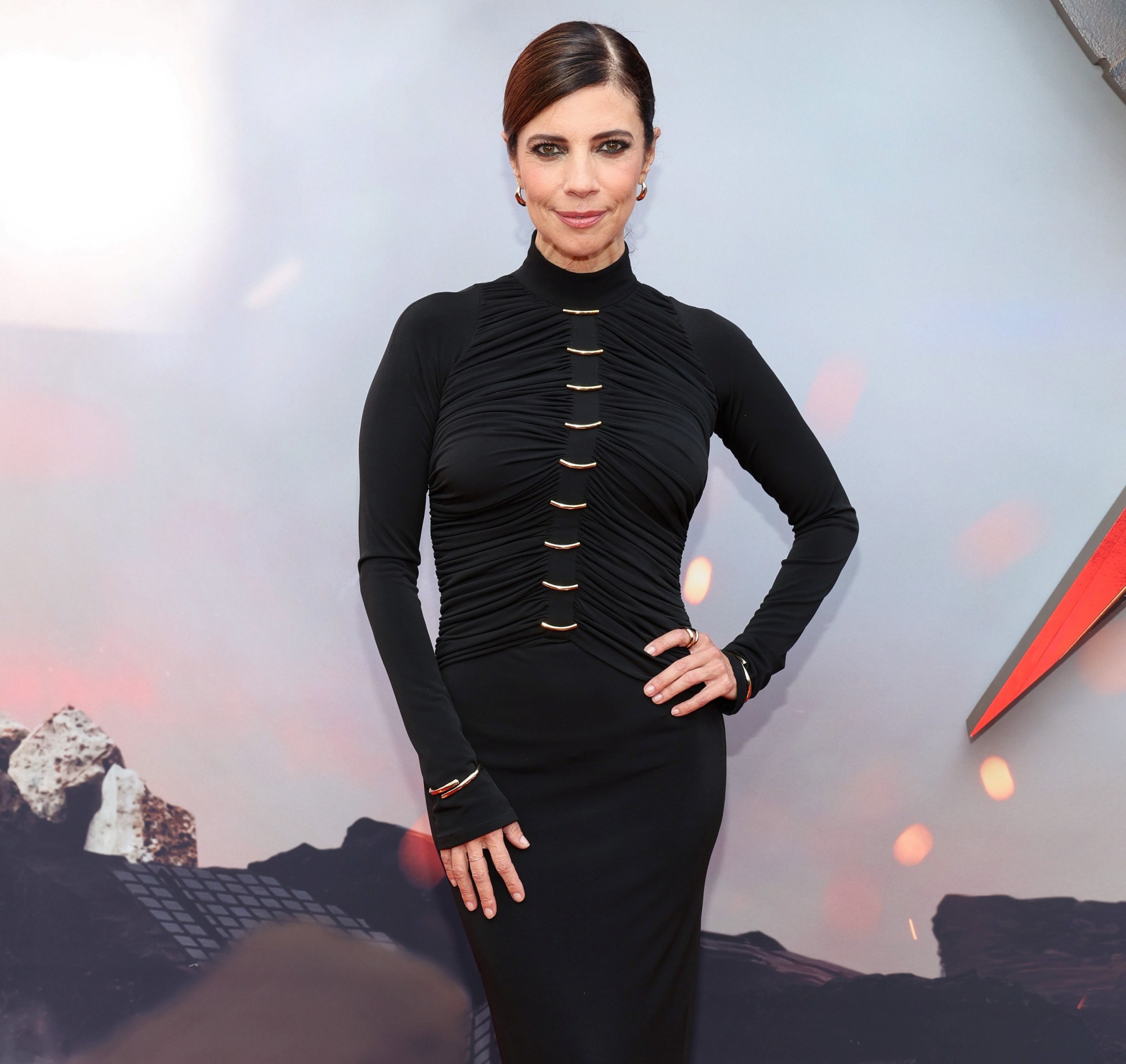
- Interviews
Maribel Verdú: “Ezra Miller and I had chemistry from the moment we met”
Maribel Verdú is an experienced Spanish actress who enjoys working on projects she likes. But it hasn’t always been that way. As she has confessed before, she didn’t always make good choices.
Verdú started working in advertising at a very young age and made her acting debut at the age of 13 under the direction of Spanish director Vicente Aranda, who gave her the leading role in Amantes (Lovers), which launched her career.
She has worked with the best directors in Spanish and Ibero-American cinema. Some of her most important films include Belle Epoque by Fernando Trueba, Y tu mamá también with Alfonso Cuarón (a two-time Golden Globe winner for Best Director) and Pan’s Labyrinth by Guillermo del Toro (Golden Globe winner for Best Director for The Shape of Water).
The Madrid native, who has received numerous awards throughout her career, has also worked in theater and television. Although she has never been tempted to work in Hollywood, we can now see her in The Flash. We talked to her via Zoom about the film directed by Andy Muschietti.
One of the best things about the film is having one of the first superheroes with a Latinx background, with a mother who is affectionate and protective. Can you talk about the portrayal of The Flash’s (Barry Allen) relationship with his mother?
I believe that any child of any nationality would do that with his mother. We’re not going to take away credit from all the mothers in the world and say that only Latinas are like that. No, of course not.
But in this case, it is true that the director wanted a Latina because Latina mothers are less cold as mothers and they express their feelings more. They pinch your cheeks, hug you, and say “I love you” 20 times. Our is a different kind of culture. And yes, both the director and the producer (Barbara Muschietti) are Argentinian and I am Spanish. So, that can’t be hidden.
Your co-star, Sasha Calle, is Colombian…
Yes, that can’t be hidden either. It’s our culture, our idiosyncrasy. I think it brought a lot of warmth to the film, along with that sense of humor and those very emotional moments.
Another very important aspect is the use of nostalgia throughout the film. How did that conversation with the director work to create one of the most intimate stories in the creation of a superhero?
It is true that within this superhero film, there are several films. And there is one film that is about the mother and the son, and that son who wants to reclaim the past to get his mother back and not lose her, to prevent his father from being in jail.
That is the foundation of the whole film, the central part, and everything that happens because of Barry’s obsession with going back to the past. It’s a part that is very difficult and it seems to me that in an action film like this, to suddenly have moments where it grounds itself and becomes intimate, beautiful, nostalgic, romantic and emotional…
I think it also speaks a lot about the sensitivity of Andy Muschietti when it comes to directing. Because suddenly, at a moment when you’re leaning back in your seat, everything changes and all the scenes with the mother and son come up. And that’s where we understand Barry’s obsession with love, which both mother and son have.
The final sequence requires a lot of chemistry with the actor. How was your relationship with Ezra Miller in order to create that very real chemistry between a mother and son?
That real chemistry you feel is the real chemistry that existed. There’s something that no matter how much we try to act, when you act from truth, it shows on screen.
Ezra and I had that chemistry from the moment we met so it has just been soaring, letting ourselves go and being in the hands, obviously, of a genius who is the director, Andy.
In one sequence of the film, you hum a line from the song “Pedro Navaja” that says, “Life gives you surprises, surprises life gives you.” How does this connect with the story?
Here, it works as a foreshadowing of something that happens later in the film. It’s like a connecting thread that brings together diverse people. In this sense, the film becomes a window or a mirror that can show alternative stories of conventional American heroes.
Cinema is about inventing other worlds, so Andy says, well, this woman is blonde with blue eyes in the comics and is from Iowa. But now I want her to have your eyes and your gaze. And when you see Barry and me, we really look like mother and son.
The core of The Flash is a story of a mother and son with Latin roots but the film also contains many other stories that can inspire different viewers to put themselves in the shoes of a superhero. I think it’s a film that everyone can connect with because I believe it’s several films in one. I think each viewer will be given what he wants and what he needs.
Translated by Mario Amaya